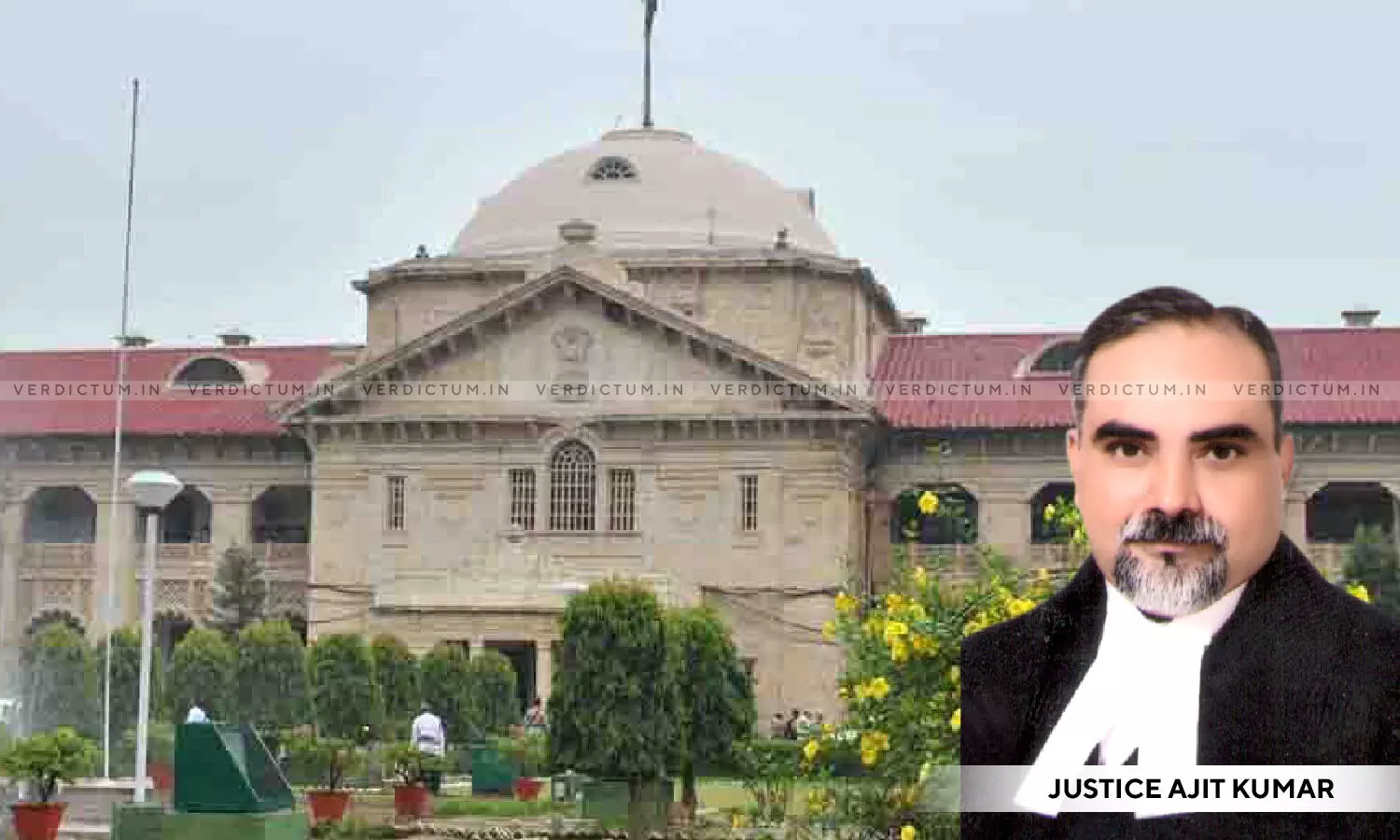
Disciplinary Authority Cannot Keep On Changing Nature Of Penalty Suo Moto: Allahabad HC In BHU Sexual Harassment Case
 |
|The Allahabad High Court observed that the service jurisprudence does not vest any power with the disciplinary authority to keep on changing the nature of penalty suo moto, especially when the matter becomes subjudice.
The Court observed thus in a writ petition filed by the Professor of Banaras Hindu University (BHU) who was accused of alleged misconduct and sexual harassment of students.
A Single Bench of Justice Ajit Kumar held, “Once the penalty has been imposed by the disciplinary authority in administrative law, such a penalty can be altered or modified only in appeal or revision by the higher authority. The service jurisprudence does not vest any power with the disciplinary authority to keep on changing the nature of penalty suo moto, more especially when the matter becomes subjudice before a Court of law as has been in the case in hand.”
The Bench said that once the proposition of law has been laid down by the Court that a disciplinary authority exercises a quasi-judicial function in the matter of disciplinary proceedings and imposition of penalty, any attempt to circumvent the proposition by such authority would certainly lead to miscarriage of justice.
Senior Advocate G.K. Singh appeared for the petitioner while Senior Advocate V.K. Upadhya appeared for the respondents.
Facts of the Case -
On the basis of complaint by students regarding the petitioner Professor’s alleged misconduct in making vague remarks upon the students that escalated to the degrading and in the nature of undignified comments termed as vulgar in nature that taking recourse to the provision of Sexual Harassment of Women at Workplace (Prevention, Prohibition and Redressal) Act, 2013, BHU proceeded to hold enquiry by an internal complaint committee into the charges. The petitioner preferred an appeal and the entire matter was placed before the Executive Council.
The petitioner, a Professor in the Department of Zoology Institute of Science, Banaras Hindu University (BHU) was awarded with the punishment of compulsory retirement from service vide a resolution adopted by the Executive Council in its meeting and the consequential order of the Registrar of the University. Hence, he challenged the same on the ground that the Executive Council being the disciplinary authority under BHU Act, 1915 and the statute framed thereunder exercises a quasi-judicial power and, therefore, in the absence of any provision of law permitting it to review its decision, such review was bad for want of lawful authority.
The High Court in view of the facts and circumstances of the case noted, “… the Executive Council admittedly being the disciplinary authority under the relevant statute and having also the power to rectify the Act of the Vice Chancellor, in the matter of suspension, the Executive Council would be taken to be the sole disciplinary authority to be exercising quasi judicial function. Neither the provisions contained under the Universities Act, 2015 nor the relevant provisions contained under the statute of the University discussed above do provide any power with the Executive Council to review its decision taken under Statute 31 nor does the Vice Chancellor can be said to be enjoying any such power over and above the power already exercised by the Executive Council.”
The Court said that since there is no power available to review a penalty imposed, it was beyond competence of Executive Council of the University to have reviewed its penalty.
“Thus, no reference could have been made by the Vice Chancellor to the Executive Council to review its decision already taken under Statute 31 of the statutes and I do not see any such power being vested with the Vice Chancellor under Section 7(c) of the Universities Act, 2015. As ex officio Chairman of the Executive Council the only duty of the Vice Chancellor is to see that provisions of the Act, the statutes and the ordinances and regulations are duly observed in discharge of function by the Executive Council and to convene its meeting only for carrying out the provisions of the Act, Statute and the Ordinances”, it added.
The Court remarked that the court would certainly be not interfering in the matter of nature of penalty or quantum of punishment and that there is no quarrel about the principle that the Courts or Tribunal would not become the disciplinary authority to embark upon an enquiry into the sufficiency of evidence so as to judge the nature of penalty. It further observed that it is the sole discretion of the disciplinary authority to decide in the given facts and circumstances and the material before it what kind of penalty should be imposed.
“Wherever there is miscarriage of justice, the power of Judicial Review would intervene and the Court would ensure that no authority exercises any power in the name of statute which does not vest in it any such power especially in the circumstances where such exercise of power results in adverse civil consequences. This is one such case”, it concluded.
The Court, therefore, directed that the petitioner be reinstated in service and be paid salary regularly including the entire arrears.
Accordingly, the High Court allowed the writ petition and quashed the impugned resolution and consequential order.
Cause Title- Shail Kumar Chaube v. Banaras Hindu University, Varanasi and 4 Others (Neutral Citation: 2024:AHC:43903)
Appearance:
Petitioner: Senior Advocate G.K. Singh and Advocate Udai Chandani.
Respondents: Senior Advocate V.K. Upadhya, Advocates Ritik Upadhya, Krishna Raj Singh Jadaun, and Vikram D. Chahan.